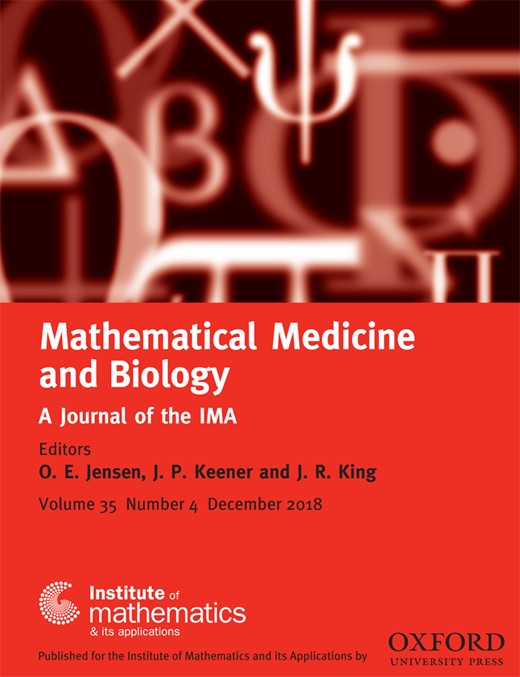-
Views
-
Cite
Cite
Kazuo Yamazaki, Global well-posedness of infectious disease models without life-time immunity: the cases of cholera and avian influenza, Mathematical Medicine and Biology: A Journal of the IMA, Volume 35, Issue 4, December 2018, Pages 427–445, https://doi.org/10.1093/imammb/dqx016
Close - Share Icon Share
Abstract
We study the systems of partial differential equations with diffusion that model the dynamics of infectious diseases without life-time immunity, in particular the cases of cholera from Wang & Wang (2015, J. Biol. Dyn., 9, 233–261) and avian influenza from Vaidya et al. (2012, Discrete Contin. Dyn. Syst. Ser. B, 17, 2829–2848). In both works, similarly to all others in the literature on various models of infectious diseases and more, it had to be assumed for a technical reason that the diffusivity coefficients of the susceptible, infected and recovered individuals, humans or birds, had to be identical in order to prove the existence of their unique solutions for all time. Considering that such uniform diffusivity strengths among the susceptible, infected and recovered hosts may not always be plausible in real world, we investigate the global well-posedness issue when such conditions are relaxed. In particular for the cholera model from Wang & Wang (2015, J. Biol. Dyn., 9, 233–261), we prove the global well-posedness with no condition on the diffusivity coefficients at all. For the avian influenza model from Vaidya et al. (2012, Discrete Contin. Dyn. Syst. Ser. B, 17, 2829–2848), we prove the global well-posedness with no condition on the diffusivity coefficients if the spatial dimension is one, and under a partial condition that the diffusivity coefficients of the susceptible and the infected hosts are same otherwise.





